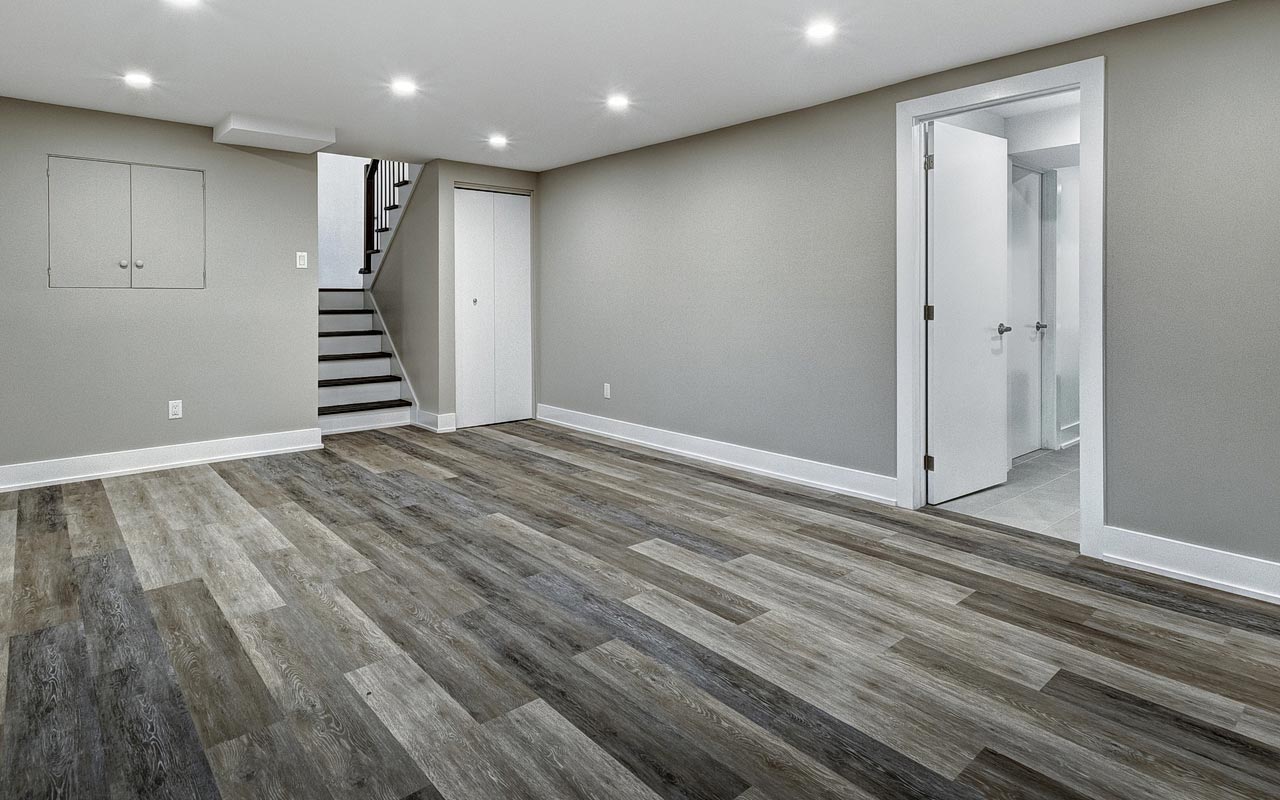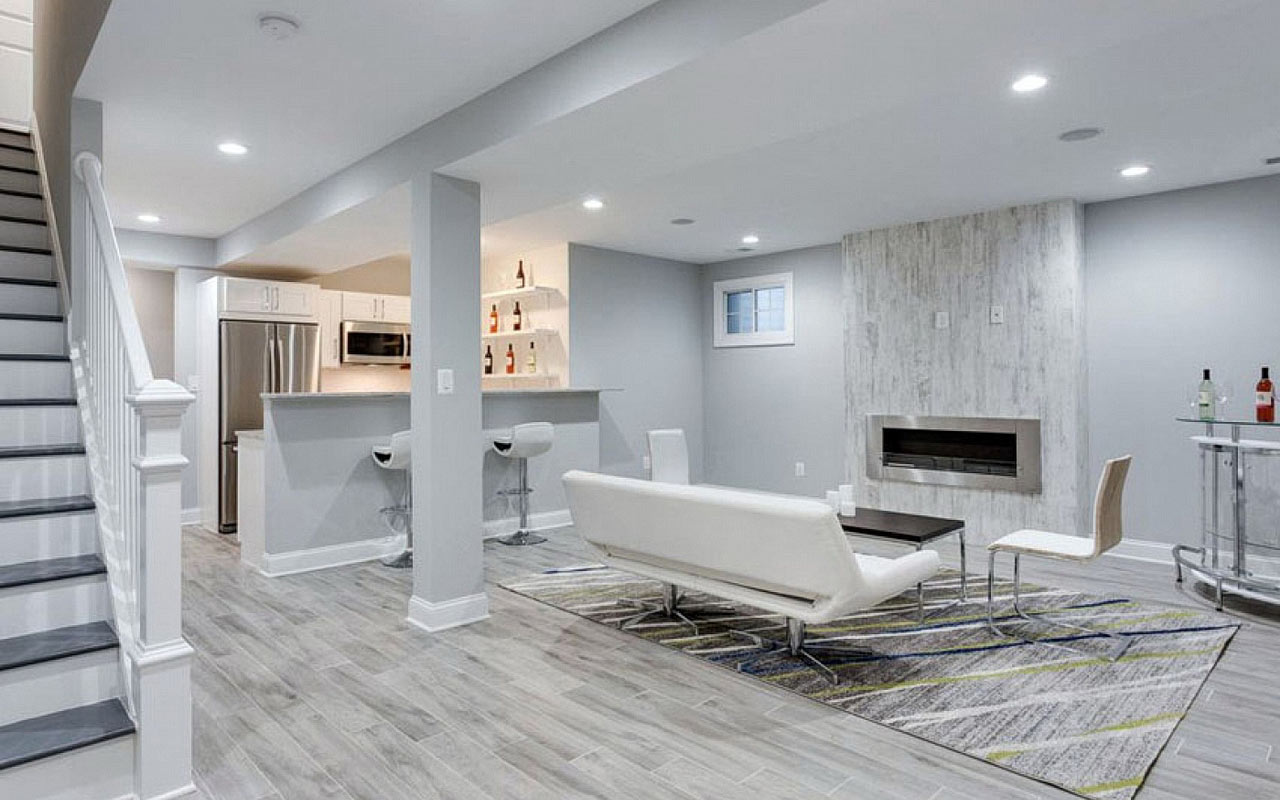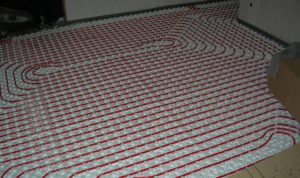It’s a well-known fact that houses with basements are more challenging to warm up, especially during winter.
Cold and wet basement floors can lead to a musty odor, mold on the walls, increased utility bills, and overall discomfort. By insulating your basement floor, not only will you warm up your entire house faster, but you will also improve your home’s value.
In this article, we’ll introduce you to some basic basement floor insulation options you have as a homeowner.
Why You Should Insulate Your Basement Floors
Basements of older houses are typically not insulated, which causes many issues for the homeowner. Whether basement floor insulation seems like a demanding investment or a plan you keep putting off until next year, these issues will only continue to accumulate. They may even cause more problems in the future.
These are some of the most important reasons why you should consider basement floor insulation options:
1. Severe Heat Loss
The bigger the house you have, the more heat is required to warm it up. This rule especially applies to homes with basements that are poorly insulated or not insulated at all. This cold space uses up an increased amount of heat, even accounting for one-third of your home’s heat loss. An uninsulated basement not only makes your basement freezing but your entire house.
This may not present an overwhelming issue for homeowners who live in warmer climates. However, if you live in Toronto and the surrounding cities, you already know that winter can last for four to five months, and the temperature can drop to -7 degrees Celsius on average. In January, when Toronto is the coldest, temperatures can even drop to -20 degrees Celsius. At times like these, keeping your home warm is more imperative than ever.
2. Increased Heating Bills
Since your uninsulated basement eats up so much heat during winter, it naturally affects your utility bills. Considering that the average monthly utility bill amounts to $125-150 in Toronto, insulating your basement would save you a lot of money in the long run.
Keep in mind that many things in your basement should be kept at room temperature, including your water heater, furnace, hot water pipes, and heating ducts. Too much cold can prevent them from functioning properly, leading to higher utility bills.
Even if you choose to insulate your basement floors first and then move on to the walls, this will still greatly minimize how much you spend on utilities every year.
3. Reduced Comfort
No one likes to spend time in a cold space, much less to live in it. A basement with cold (or wet) concrete floors will indeed create discomfort, reducing the overall quality of your home.
Not to mention that your basement can only be used for storage and nothing else. However, if you decide to insulate and renovate your basement, it can become a place where you and your family can spend time together all year round. An insulated basement is sure to increase the value of your property, which is something to consider if you ever decide to sell your house.
4. Moisture Build-Up
The most severe issue resulting from not insulating your basement floor is moisture build-up. If the walls and floors aren’t adequately protected, it leaves room for humidity and moisture. Moisture build-up can even occur during summer if you don’t have a ventilation system built in your basement.
Concrete itself is very problematic since it retains moisture. Even if you place flooring on the concrete, the moisture will still penetrate right through it without insulating the floors first. This will eventually lead to cracked walls, dripping paint from the ceiling, mold, and a foul odor that you won’t be able to eliminate.
What’s the Best Way to Insulate Basement Floor?
There are many factors you need to consider before you start the insulation project. Several aspects must be determined initially, like the condition of your basement floor, the height of the ceiling, whether the floor is wet or dry, level or uneven. Note that wet floors need to be repaired before you start insulating them, or it could jeopardize the entire insulation process.
While there are numerous ways you can go about this project, the best way to insulate basement floors is by insulating sub-floor panels, which require a minimum finished headroom of 6 to 7 feet. The insulation consists of foam boards, sleepers and a plywood sub-floor layer. An alternative to floorboards is a sheet of polyethylene, which needs to be extended about 3 inches up the walls. This is why you would need an extended room clearance.
Remember that you need to insulate your basement floor before installing the flooring. Choosing the right flooring is equally as relevant as the insulation process. The flooring material should repel moisture, prevent coldness, and most importantly, it needs to be durable. Homeowners typically choose between ceramic tiles, vinyl, laminate, and carpet tiles. If you plan on renovating your basement, then select a flooring material that will match the overall interior design.
Another option is to install radiant heating in your basement, as this will help retain the heat and spread it evenly throughout your entire house. If you choose any of the flooring materials we mentioned above, all you need is to install electric heating mats underneath the flooring. Warm floors are especially convenient if you have children.
Why Choose Us for the Job
Insulating your basement floors is by no means an easy task. Many homeowners insulate their floors as part of a DIY project. However, basement floor insulation should be handled by professionals for multiple reasons. More importantly, they can locate the source of the problem and quickly deal with it, saving you time and money.
If you live in Toronto or the surrounding areas, we can help you. MT Drains is a plumbing and waterproofing company in Vaughan. We’re a team of skilled individuals who are licensed professionals in this field. MT Drains will explain your basement floor insulation options and recommend the best and fastest way to protect your basement floors.







